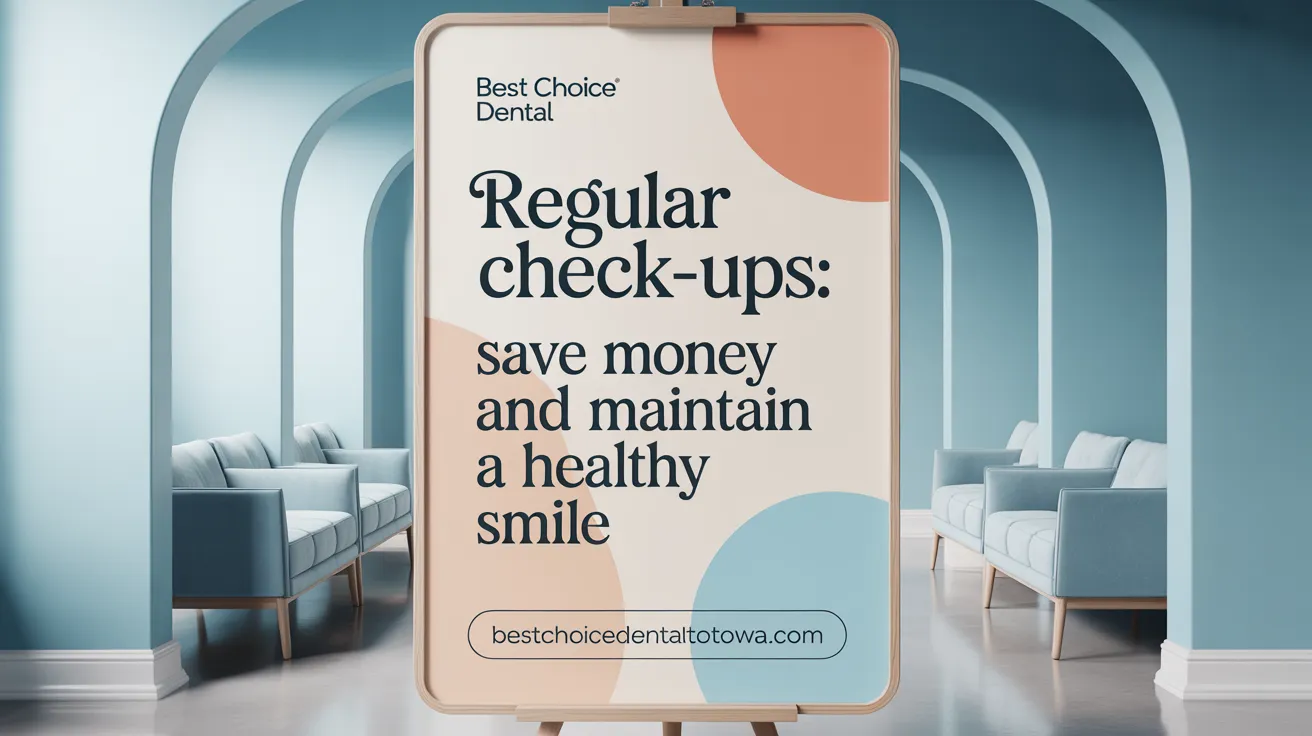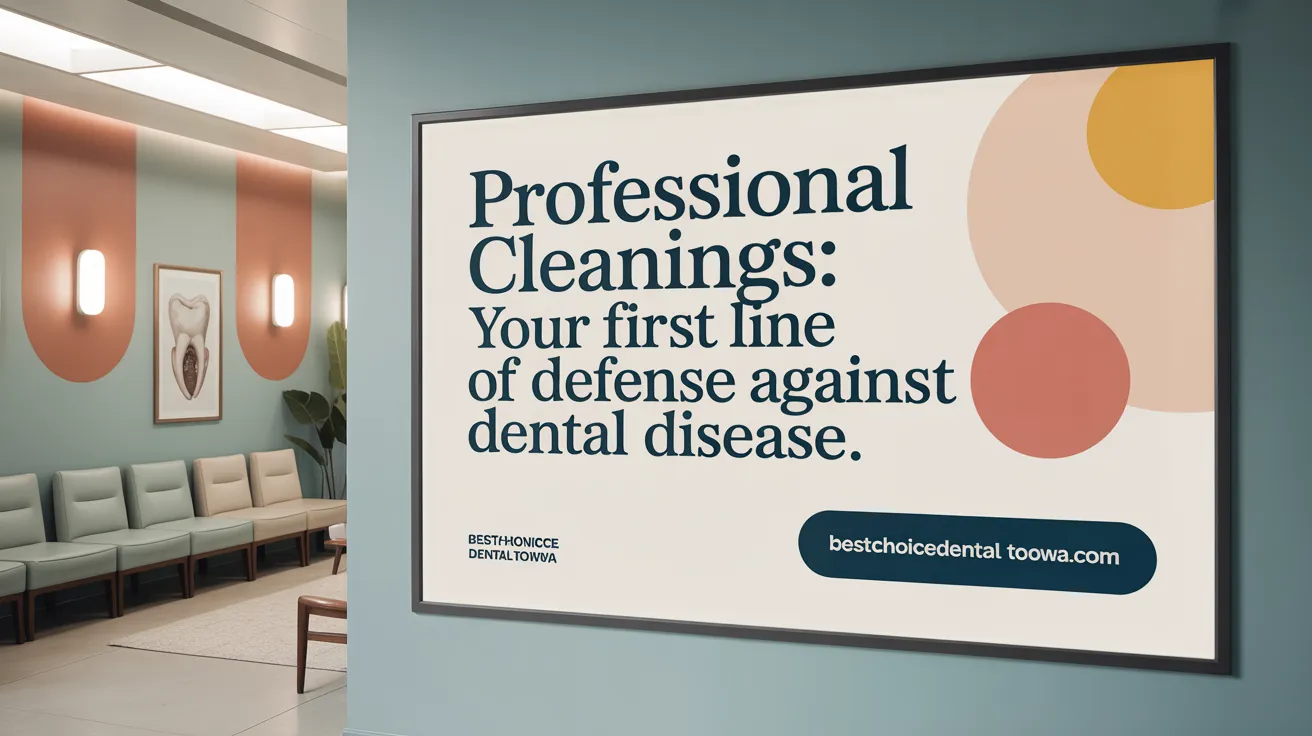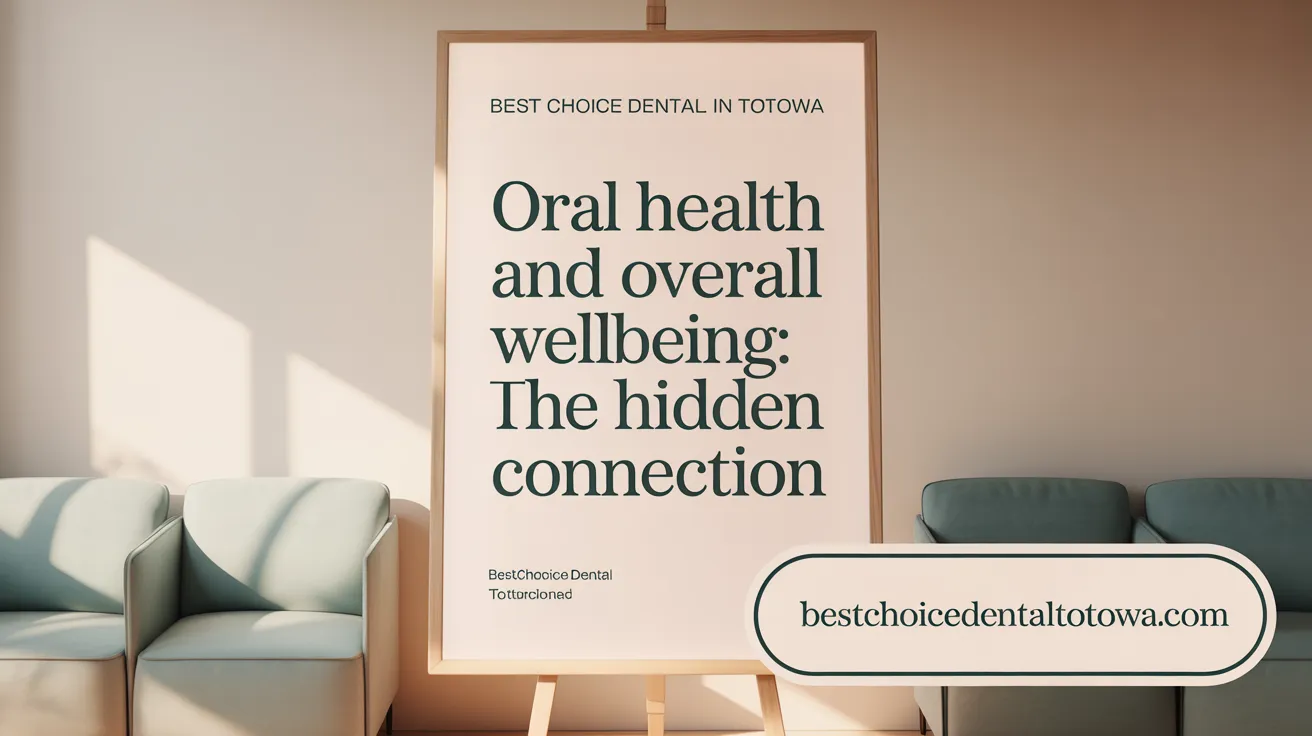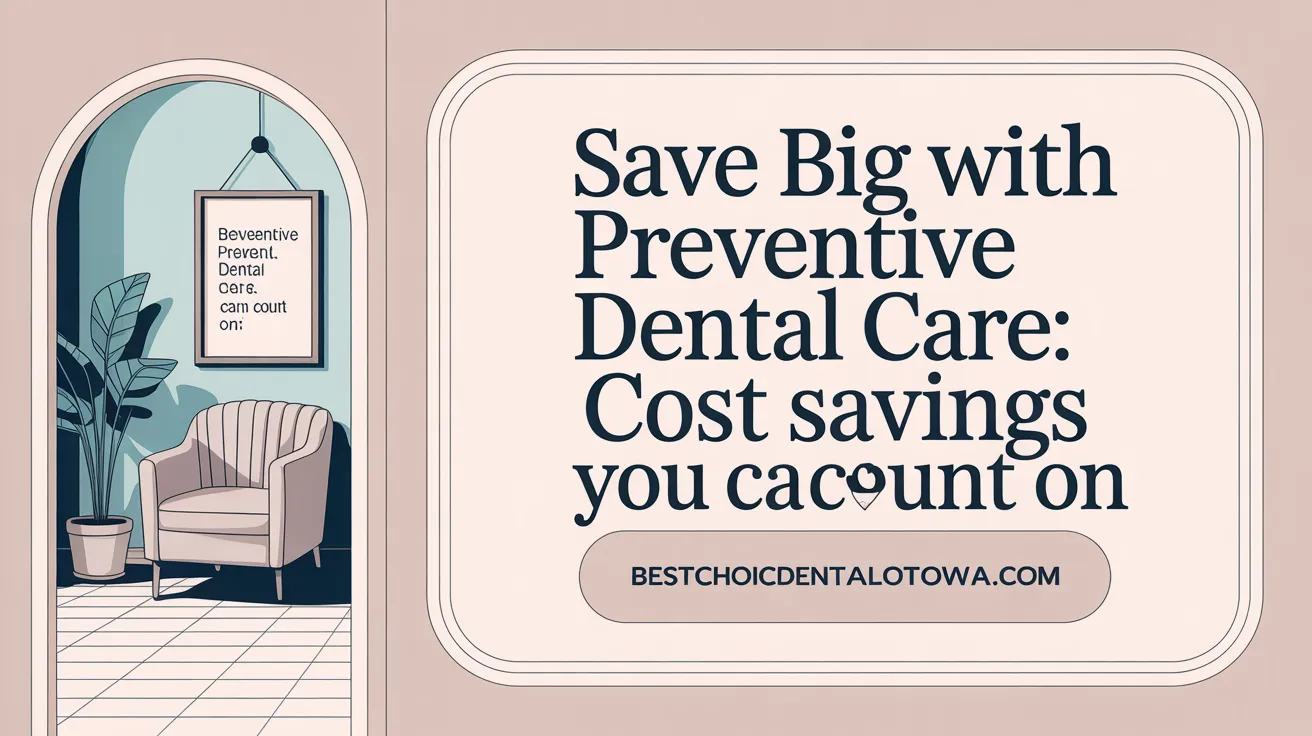Understanding the Value of Regular Dental Check-Ups
Regular dental check-ups are pivotal in maintaining oral health and avoiding the high costs associated with advanced dental procedures. By identifying and managing dental issues early, patients can prevent complications that require expensive treatments. This article explores how routine dental visits contribute to early detection, preventive care, and overall cost savings, while also linking oral health to general well-being.
Early Detection of Dental Issues: The Key to Affordable Care
Why is early detection of dental issues important?
Routine dental visits are vital for catching problems like cavities, gum disease, and oral cancer early, often before symptoms appear. Early diagnosis allows for simpler, less invasive, and less costly treatments, significantly reducing the risk of complications.
How do modern technologies aid early detection?
Tools such as digital X-rays and intraoral cameras give dentists a detailed view inside the mouth. These technologies help identify issues at their earliest stages, improving the chances for successful intervention.
What are the benefits of addressing dental problems early?
Treating issues promptly prevents them from worsening, which can lead to more complex procedures like root canals, crowns, or extractions. Early intervention not only makes treatment more affordable but also minimizes patient discomfort and preserves natural teeth.
How does early detection impact overall health?
Beyond oral health, early diagnosis during check-ups can reveal signs of systemic conditions such as diabetes and heart disease. Managing these health issues early reduces the likelihood of serious medical complications.
| Aspect of Dental Care | Benefits of Early Detection | Tools/Methods | Long-term Impact |
|---|---|---|---|
| Cavities | Less invasive, cheaper fillings | Digital X-rays, visual exams | Less decay, preserved tooth structure |
| Gum Disease | Prevents progression to surgery | Periodontal probing, imaging | Reduced risk of tooth loss |
| Oral Cancer | Early treatment improves survival | Oral cancer screenings, intraoral exams | Increased treatment success |
| Overall Health | Fewer systemic health problems | Routine checkups, health screenings | Better long-term health outcomes |
In conclusion, regular dental exams combined with advanced diagnostic tools enable early detection of issues, which is crucial for maintaining oral and overall health while reducing treatment costs.
Preventive Dentistrys Role in Maintaining Oral Health and Reducing Expenses
How does preventive dentistry contribute to maintaining oral health and reducing future dental expenses?
Preventive dentistry is essential for keeping our mouths healthy over the long term. It involves regular check-ups, professional cleanings, fluoride treatments, and dental sealants that help catch issues early before they develop into serious problems. During routine visits, dentists can identify and treat minor concerns such as cavities and gum inflammation, which are easier and less costly to manage.
Professional cleanings remove plaque and tartar buildup that cannot be eliminated through daily brushing alone. This prevents the formation of cavities and gum disease, which are among the most common and costly dental problems. Fluoride applications and sealants further protect teeth, especially in vulnerable areas prone to decay, effectively reducing the need for restorative work later.
Patient education is also a vital part of preventive care. Dentists teach proper oral hygiene habits, dietary advice, and the importance of regular brushing and flossing. These practices help individuals maintain healthier teeth and gums, decreasing the risk of costly treatments such as root canals, crowns, or extractions.
What do statistics say about savings from preventive dental care?
Research indicates that for every dollar spent on preventive dental services, patients can save between $8 and $50 in future treatment costs. Regular visits not only prevent cavities and periodontal disease but also reduce emergency dental visits and surgeries. Studies also show that consistent preventive care during a span of five years can lower overall dental costs significantly.
In particular, children receiving sealants can prevent up to 80% of cavities, which translates to fewer restorative procedures during childhood and beyond. Additionally, populations with access to affordable preventive dental services experience fewer disparities in oral health and lower rates of dental emergencies.
How do early interventions simplify future treatments?
Treating problems early simplifies procedures and reduces expenses. Detecting cavities at an initial stage allows simple fillings rather than root canals or extractions that become necessary if decay is left untreated. Similarly, early management of gum disease can prevent advanced stages requiring surgery or implants.
This proactive approach not only preserves natural teeth but also minimizes invasive interventions. It results in less discomfort for patients and considerable savings for families and health systems alike. Over time, maintaining good oral health through consistent preventive care leads to fewer dental emergencies, surgeries, and prescriptions for pain medications or antibiotics.
| Aspect | Preventive Measures | Benefits | Cost Impact |
|---|---|---|---|
| Early cavity detection | Regular check-ups, sealants | Easier, less costly treatments | Significant long-term savings |
| Gum disease prevention | Cleanings, education | Avoids advanced surgery or tooth loss | Reduced health expenses |
| Oral cancer screening | Routine exams | Early diagnosis improves prognosis | Low compared to treatments for late-stage cancers |
| Overall health benefits | Good hygiene, diet control | Reduces risk of systemic health problems | Lower healthcare costs |
Preventive dental care is an investment that pays off by reducing complicated treatments and promoting healthier teeth and gums. It is a vital strategy for individuals seeking to lower their dental expenses while maintaining a high quality of oral health.
How Regular Check-Ups Prevent Costly Dental Treatments

How do regular dental check-ups help prevent costly dental treatments?
Regular dental visits are essential in catching problems like cavities, gum disease, and oral cancer early when they are easier and less expensive to treat. Dentists perform thorough examinations during these checkups, allowing them to spot issues before symptoms develop or worsen.
One of the main benefits of routine dental exams is the early detection of cavities. Untreated cavities can quickly lead to deep decay, sometimes requiring costly procedures like root canals or tooth extractions. By identifying and treating small cavities early, patients can avoid these expensive interventions.
Gum disease is another common concern that benefits from regular checkups. In its initial stages, gum inflammation can often be reversed with simple cleanings, but if left untreated, it can lead to serious issues such as tooth loss and bone damage, which require costly surgical treatments.
Professional cleanings during checkups play a critical role in preventing plaque and tartar buildup, which are primary causes of decay and gum disease. Removing these materials regularly helps maintain healthy gums and teeth, reducing the likelihood of more invasive procedures later.
Dentists also monitor the progression of oral health over time, ensuring that any early signs of deterioration are addressed promptly. Additionally, oral cancer screenings are performed during checkups, facilitating early diagnosis, which greatly improves treatment success rates.
Maintaining consistent dental visits supports overall health too. Poor oral health has been linked to systemic conditions, including heart disease and diabetes. Therefore, preventive care at the dentist not only saves money but also promotes better health.
Studies show that every dollar spent on preventive dental care can save between $8 and $50 on future restorative and emergency treatments. By catching problems early, patients avoid the higher costs associated with extensive dental work or emergency procedures.
In conclusion, regular checkups enable early diagnosis and treatment, preventing minor issues from escalating into major, costly problems. They also foster good oral hygiene habits and promote overall health, providing a vital safeguard against expensive dental treatments.
Professional Cleanings: A Preventive Shield Against Dental Decay and Gum Disease

Why are professional cleanings vital in preventive dental care?
Professional dental cleanings play a crucial role in maintaining oral health by removing plaque and tartar build-up that ordinary brushing and flossing cannot reach. This stubborn plaque can harden into tartar if not treated regularly, which becomes a breeding ground for bacteria that cause cavities and gum disease.
How do cleanings help prevent dental problems?
By thoroughly cleaning teeth, dental professionals significantly reduce the risk of developing cavities and inflammation of the gums. This prevents early-stage gum disease, which, if left untreated, can escalate into severe periodontal issues requiring complex and costly treatments like surgery or implants.
What is the impact of cleanings on gum health?
Regular cleanings help keep gums healthy and prevent the progression of periodontal disease. Early intervention through professional cleanings can halt the disease's progression, avoiding the need for more invasive treatments down the line.
How often should you get professional cleanings?
Most dental health experts recommend visiting the dentist for a cleaning at least twice a year. Consistent checkups and cleanings are key in catching and addressing issues early before they develop into more serious and expensive conditions.
| Benefit of Professional Cleanings | Description | Additional Details |
|---|---|---|
| Removes plaque and tartar | Keeps teeth free from bacteria hiding in hard-to-reach areas | Essential for preventing decay and gum inflammation |
| Prevents cavities | Reduces risk by eliminating harmful bacteria | Especially important in areas prone to decay |
| Protects gum health | Maintains healthy gums and prevents disease | Early cleaning can prevent the need for gum surgery |
| Reduces disease progression | Slows or stops the worsening of periodontal disease | Regular cleanings are part of a proactive oral health strategy |
Maintaining good oral hygiene and scheduling regular professional cleanings are proactive steps that contribute significantly to overall health. They help prevent serious dental issues and are cost-effective in the long run, saving you from expensive procedures later.
Linking Oral Health and Systemic Diseases: Broader Benefits of Dental Visits

How does oral health impact heart disease, diabetes, and respiratory infections?
Maintaining good oral hygiene isn’t just about healthy teeth and gums—it also affects overall health. Poor oral health, especially gum disease, has been linked to increased risks of heart disease, diabetes, and respiratory infections. Inflammation caused by gum disease can contribute to clogged arteries and worsen blood sugar control in diabetics, increasing the risk of serious health complications.
What is the role of dental check-ups in recognizing oral signs of systemic conditions?
During routine dental visits, dentists have a unique opportunity to spot early signs of systemic diseases. For example, unusual oral lesions, dry mouth, or inflamed gums can indicate conditions like vitamin deficiencies, autoimmune disorders, or even certain cancers. Early diagnosis through dental exams can lead to timely medical intervention, potentially preventing more severe health issues.
How do regular dental visits contribute to cost savings by preventing systemic health issues?
Preventive dental care plays a significant role in reducing long-term healthcare costs. By identifying and managing oral health problems early, patients can avoid costly treatments and hospitalizations associated with advanced systemic complications. This proactive approach ultimately lowers the financial burden on both individuals and healthcare systems.
| Benefit | Explanation | Supporting Data |
|---|---|---|
| Reduces systemic risks | Maintains oral health to prevent related health issues | Strong link between gum disease and heart disease |
| Early detection of issues | Dental exams find systemic signs early | Oral signs of autoimmune and nutritional issues |
| Cost-effective health care | Prevents costly treatments for systemic diseases | Savings of up to 50 times the prevention cost |
Regular dental visits extend beyond oral health, contributing to overall wellness by preventing systemic diseases and reducing healthcare costs.
Economic Evidence Supporting Regular Preventive Dental Care
 Research consistently shows that investing in regular preventive dental care is highly cost-effective. For each dollar spent on prevention, families can save between $8 and $50 in future dental treatments and emergency interventions. This substantial saving highlights the financial benefit of early detection and routine care.
Research consistently shows that investing in regular preventive dental care is highly cost-effective. For each dollar spent on prevention, families can save between $8 and $50 in future dental treatments and emergency interventions. This substantial saving highlights the financial benefit of early detection and routine care.
Regular dental visits also significantly reduce the likelihood of costly health care episodes. Studies reveal that patients who undergo consistent preventive care are less likely to visit emergency departments for nontraumatic dental conditions. Furthermore, these visits decrease the chances of needing major dental surgeries, such as extractions or root canals.
Prevention’s impact extends beyond direct dental costs. Patients maintaining good oral health with routine checkups are less likely to be prescribed opioids for dental pain. This reduction not only improves health outcomes but also lessens the risk of dependency and related complications.
School-based sealant programs offer a popular example of preventive care that is both effective and economical. These programs prevent cavities in children, reducing overall treatment costs. Additionally, Medicaid data show that children and adults who receive consistent preventive care tend to have lower long-term dental expenses and better oral health.
| Cost-Related Benefits | Impact | Additional Details |
|---|---|---|
| Savings per dollar on prevention | $8–$50 saved | Varies by study and population |
| Fewer emergency department visits | Significantly reduced | Less costly than emergency treatments |
| Fewer dental surgeries | Reduced likelihood of invasive procedures | Prevents advanced decay and gum disease |
| Lower opioid prescriptions | Decreased use among regular preventive care recipients | Decreases dependency risk |
| School programs and Medicaid outcomes | Cost-effective with improved oral health | Effective for underserved populations |
In conclusion, these findings support the critical role of preventive dental care, not only for maintaining oral health but also for reducing overall healthcare costs and improving public health.
Patient Empowerment through Education and Routine Care

Dentist’s role in educating about oral hygiene and diet
Dentists play a crucial role in teaching patients how to maintain good oral hygiene and make healthy dietary choices. They provide guidance on proper brushing, flossing techniques, and the importance of reducing sugary foods and drinks, which can contribute to cavities and decay.
Use of fluoride treatments and sealants to fortify teeth
Preventive treatments like fluoride applications and dental sealants strengthen teeth and help prevent cavities. Fluoride helps remineralize tooth enamel, making it more resistant to decay, whereas sealants act as a barrier to protect vulnerable areas, especially in children.
Behavioral practices to complement professional care
Good daily habits such as consistent brushing, flossing, and moderating sugar intake support the work of dental professionals. Using mouthguards during sports or for grinding at night can further prevent dental injuries.
Long-term oral health benefits linked to regular check-ups
Routine dental visits facilitate early detection and treatment of problems like cavities and gum disease. Regular prevention not only reduces the need for costly procedures but also contributes to overall health, lowering risks of systemic conditions like heart disease and diabetes.
Preventing High Dental Costs Starts with Routine Care
Regular dental check-ups are a cornerstone of effective oral health management, providing the opportunity to detect and address problems at their earliest stages. Preventive dental care, through cleanings, screenings, and patient education, significantly reduces the risks of severe dental diseases and their associated high treatment costs. Beyond the mouth, maintaining oral health supports overall systemic well-being, reinforcing the value of consistent dental visits. Evidence demonstrates substantial cost savings and improved health outcomes from prioritizing prevention. Ultimately, committing to routine dental care not only enhances quality of life but also protects your financial health by avoiding complex and expensive dental procedures.
References
- The Cost of Avoiding Dental Exams: How Skipping Visits ...
- How Regular Dental Visits Help with Preventive Care
- Why Regular Dental Checkups Are Essential for ...
- The role of preventive care in reducing health care costs
- The impact of underutilization of preventive dental care by ...
- Why Regular Dental Check-ups Are Essential for Long- ...
- The Value of Preventive Oral Health Care | College of Dentistry
